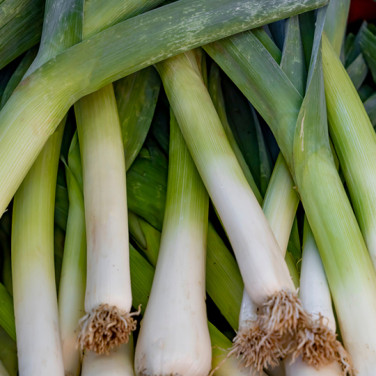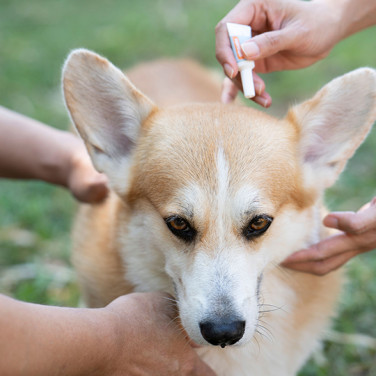SYMPTOMS
Why Won't My Dog Drink Water? 6 Common Reasons and Solutions
페이지 정보
본문


What does it mean if my dog does not drink water?
Water plays an essential role in your dog’s normal bodily functions. Understandably, it can be distressing when you notice a decrease in their water intake. Your dog can quickly become very sick if they do not drink enough water daily. There are multiple reasons why a dog may reduce their water intake that range from harmless to emergency. We will go over the 6 common causes of reduced water intake and teach you how to resolve these problems.
The typical daily water intake for a dog should be around an ounce of water for every pound of body weight. For instance, a 10-pound dog should drink about ⅔ of a 16oz bottle of water every day. This symptom can lead to the risk of dehydration and other serious symptoms that warrants a visit to the vet to address immediately.
6 Common causes why your dog is not drinking water
There are 6 common reasons why a dog may drink less water and they are as follows:
-
Decreased activity/change in weather
When a dog’s activity level decreases, they tend to not feel as thirsty as they might normally be. For instance, during colder seasons your dog may not exert as much energy and won’t replenish their need for hydration as often as they used to. It is important to pay attention to the temperature and your dog’s lifestyle to know if the cause is as harmless as a decrease in exercise or something more serious. As long as your dog does not refuse water altogether, it is completely normal under these circumstances.
-
Change in environment
When a dog is in an unfamiliar environment, it may struggle to adapt and refuse to drink water due to unfamiliar smells and settings. Your dog has a very sensitive nose and this symptom can be triggered if they smell the water you offer comes from a different water source that you usually provide. It may be a good idea to prepare water from home to help make them more comfortable in the new environment.

-
Aging
As your dog gets older, their water intake and appetite may naturally decrease. This is due to their body becoming less active and may not require as much water as they did before. However, elderly dogs still require adequate hydration. If you notice a persistent decrease or refusal of water, it is a good idea to switch their meal to wet food or consult with a veterinarian for an alternative solution.
-
Feed/contaminated water
If you feed your pet wet food, they may drink less water as they receive hydration from the food itself. Additionally, if you do not change their water bowl often and there are foreign substances. Your dog may refuse to drink water that is old or contains contaminants. Ensure that you provide a fresh bowl of water consistently.
-
Anxiety
Anxiety due to past trauma, changes in the family dynamic, or moving to a new house, can cause stress and make a dog lose interest in eating and drinking. Additionally, some dogs are naturally anxious or fearful and may have issues with eating and drinking, particularly when sharing with other animals in the household. To help your dog feel more secure, consider using a new water bowl, changing the location of the water bowl, or seeking the help of a dog trainer who can offer creative solutions to address these issues.
-
Diseases/oral health problems
Various diseases and pains in the mouth can also cause a dog to not drink water, such as:
-
Urinary tract infections
When a dog has a UTI, they will experience pain when urinating and may refuse to drink water as a result.
-
Oral diseases
Diseases in the oral cavity cause pain and make a dog very reluctant to touch anything with their mouth leading to a refusal to drink.
-
Injury in their mouth/teeth
A dog may drink less due to pain in their mouth when water touches their sensitive teeth or injury around their mouth.
-
Symptoms that may accompany if your dog stops drinking water
If a dog’s water intake is reduced due to a disease or illness, there may be other symptoms that can indicate the underlying health issue. For example, a UTI will cause your dog to urinate more frequently, have trouble urinating, have blood in urine, and have painful urination alongside the refusal to drink water. If your dog's water intake is reduced due to illness, there may be other symptoms that accompany it. For example, if the reduction in drinking water is caused by a urinary tract infection, your dog may also exhibit symptoms such as frequent urination, poor urination, hematuria, and pain during urination in addition to refusing water. Similarly, if the reduction in drinking water is caused by oral disease, your dog may exhibit symptoms such as bad breath, bleeding in the mouth, and signs of pain when touched.
The risk of water refusal and when to see a vet for a dog not drinking water
Ensuring your dog drinks the daily recommended amount of water is essential to their well-being. If you notice a refusal to drink, it is best to address it as soon as possible. As water refusal progresses, dehydration can become more severe which will pose a threat to a dog’s life. It is difficult to judge the severity of dehydration in dogs, so we recommend visiting a veterinary hospital if water refusal persists and receiving treatment to address the underlying cause of this symptom. In the meantime, fluid therapy can be administered to your dog to temporarily address dehydration.
Signs of dehydration in dogs to look out for:
- Decreased energy
- Dry gums
- Increased heart rate
- Loss of skin elasticity
- Sunken eyes
- Decreased urine volume or thick urine
It is important to visit a veterinary hospital as soon as possible if you notice any of these symptoms. If symptoms of a UTI or oral disease appear, it is also recommended to seek veterinary treatment as soon as possible.
How to treat a dog not drinking water at home
If your puppy refuses to drink water, there are a few things you can try at home before visiting the veterinarian.
- Clean the water bowl
- Try different materials for their water bowls (ex. stainless steel, plastic, ceramic, etc.)
- Keep your dog’s water bowl filled with fresh water every day so they can drink whenever they want
- Place multiple water bowls in various places in the house
- If your dog has trouble walking or suffers from a condition such as arthritis, keep a water bowl within easy reach
- Feeding water directly by hand
- Switching to wet foods or soaking dry food in some water or dog soup
- Feeding flavored water for dogs
- If the environment is hot, adding ice to the water bowl can make a fun and refreshing game out of drinking water
- It is not the most recommended home treatment, depending on how much your pet will hate it or how weak their condition is. You can try feeding water through a syringe directly into their mouth.
- Change the quality or source of water
Diagnosing a dog not drinking water
When you take your puppy to the vet for not drinking water, the vet will likely check for underlying conditions that can cause this symptom. They will assess your pet’s conditions first with questions about when you noticed the symptoms beginning, the state of your pet’s urine, how frequently your pet urinates, any signs of bleeding, assess bad odors, or food refusal as well. After your pet’s condition has been assessed, several tests can be administered to determine the underlying cause of water refusal.
Your veterinarian may conduct one of the following tests:
-
Oral examination
-
Urine test
A urine test can be performed to check the acidity and specific gravity of the urine and whether the urine is mixed with other components such as protein or red blood cells. In addition, it can be directly smeared on a slide and observed to see if there are any signs of infection.
-
Abdominal ultrasound
Abdominal ultrasound can determine the condition of the bladder or kidneys.
-
FNA
If a tumor is detected in the oral cavity and water intake is reduced, the tumor cells can be obtained with a needle and observed.
-
Biopsy
If a tumor is detected, a biopsy is necessary to confirm the type of tumor present.
Treatment for a dog not drinking water

The treatment for this symptom will depend on the underlying cause.
-
Antibiotics
Antibiotics can treat conditions such as UTIs and infections due to a mouth wound.
-
Disinfection and tooth extraction
Disinfecting or extracting a tooth can treat periodontitis.
-
Radiation therapy
If a tumor is present, radiation therapy, chemotherapy, or surgery may be considered.
-
Fluid therapy
In cases of dehydration, fluid therapy will be administered to correct hydration and electrolyte levels.
How to prevent the symptom of dogs not drinking water
To prevent your puppy from drinking less water, it is recommended to make improvements in their environment. Creating a clean and comfortable environment for your dog to drink water is important in encouraging healthy daily water intake. If you observe symptoms of illness, it is crucial to seek treatment from a veterinary hospital as soon as possible to prevent your pet’s condition from worsening.
Find out more about your dog’s symptoms and diseases on the Buddydoc app!

The Buddydoc library is filled with everything you’d want to know about each symptom and disease your pet may experience. If you would like to find out more about the causes, signs, treatments, preventions, and more for your dog’s disease. Try out the Buddydoc app and search for your pet’s symptoms or diseases in the Buddydoc library.













